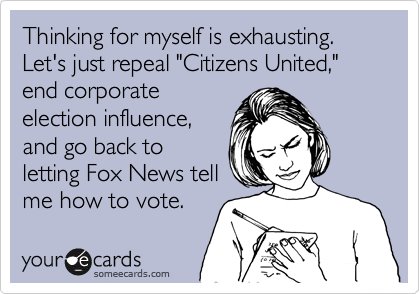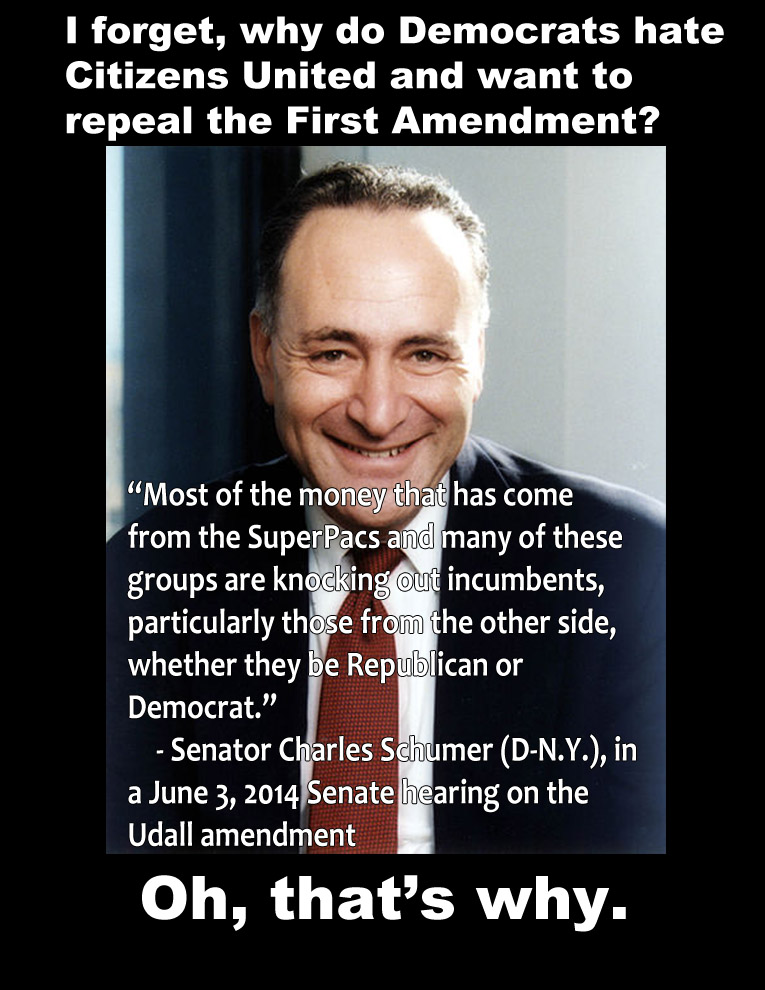by Thomas R. Eddlem
Nothing appears more common sense at first glance, and less appropriate upon further inspection, than the idea that government should enact laws requiring disclosure of the funders of political campaign advertisements.
One might ask: Who could be against more transparency?
The reality is that banning anonymous political speech is concept at war not only with the First Amendment (which says “Congress shall make no law” on speech) but also a valuable American tradition which has been practiced longer than we have existed as a nation.
We became independent of Great Britain largely because of anonymous political speech by Samuel Adams, writing anonymously for Boston newspapers as “Vindex.” Without anonymous political speech, it’s not much of an exaggeration to say the United States of America would never even have existed.
When independence was secured, America’s founding fathers continued to write anonymously for and against a new Constitution as “The Federalist,” “Publius,” “The Federal Farmer” and the like. Today, we call these anonymous political writings — which were redistributed nationally in broadsheet format — the Federalist Papers and the Anti-Federalist Papers. Whatever you think of the US Constitution, it’s clear we wouldn’t have had the same Constitution and Bill of Rights without these writings.
And after the Constitution and Bill of Rights were adopted, the founding generation continued to engage in anonymous political campaigning frequently. James Madison and Alexander Hamilton dueled over President Washington’s neutrality proclamation as “Pacificus,” “Americanus” and “Helvidius.”
This tradition continues today, with anonymous campaigners and whistleblowers engaging in anonymous speech, whether it was “Deep Throat” in the Watergate scandal, George F. Kennan explaining the Cold War policy of “containment” as “X” in Foreign Affairs magazine or Wikileaks’ ongoing exposure of political secrets.
It’s all about the Ad Hominem
The kind of people who are most interested in “disclosure” laws are the ones most interested in employing the ad hominem fallacy as an attempt to get people disregard the arguments made in the articles or advertisements.
They might also think that people are sheep and easily swayed by massive waves of anonymous advertising, but the only real advantage of disclosure is the opportunity to engage in ad hominem rather than engaging the actual arguments made in the political advertisements. If people are easily swayed by massive waves of anonymous political advertisements, there’s no reason to think they won’t be swayed by massive waves of political advertisements with a byline. The entire “benefit” of disclosure hinges on the ability to negate political arguments with the ad hominem logical fallacy.
Maryland joined the colonies rebelling against Britain largely because Charles Carroll of Carrollton — later a signer of the Declaration of Independence — wrote anonymously as “First Citizen.” Had he been forced to disclose his name in his political writings, his carefully worded arguments could have easily been disparaged by loyalists attacking him as a Roman Catholic. As it happens, when loyalists eventually found out he was Catholic, they did their best to engage in ad hominem arguments disparaging Carroll’s Catholicism to destroy support for the cause of resisting British taxation. But by then it was too late, as Carroll’s logic had already won huge popular support for the patriotic cause after penning widely circulated letters as “First Citizen.”
Charles Carroll’s experience shows that anonymous political speech offers an opportunity for marginalized groups to make political arguments on the merits of their argumentation alone, without vile and bigoted ad hominem attacks.
The “disclosure” argument is, at bottom, a plea to avoid engaging the substance of political arguments by affording opponents the opportunity to shut down genuine debate with ad hominem. The side of free speech seeks to take the ad hominem weapon at least partially out of the hands of bigots.
Moreover, disclosure laws inevitably give government officials broad discretion over what kind of speech may be regulated, what must be disclosed, what the nature of the disclosure must be, etc. Should a political advertisement in 1974 that quotes “Deep Throat” require that the whistleblower be identified before it can be broadcast? Should advertisements today containing statements by anonymous whistleblowers from Wikileaks require disclosure of their names before they can be broadcast?
The power of disclosure laws to squelch whistleblowers and to intimidate many workers whose companies are under government contract is gigantic.
Which is more corrupting? Letting people speak their mind in any means they choose — as is their natural right, and which is unambiguously backed by the First Amendment — or giving government the power to regulate the manner of political speech in an era where government funding is already entangled with lots of private employers?
The existing disclosure requirements are probably the reason we have an absence of advertisements from anonymous whistleblower employees of Raytheon and General Dynamics explaining which senators are tied to the military-industrial complex. They obviously can’t do it without losing their jobs.

Like the more general call to “end the influence of money in elections,” the call for transparency acts as incumbent protection, helping only the powerful who have the power and position to intimidate dissident voices.
The call, mostly by Democrats, to end or socialize campaign contributions would only leave giant media companies with more power to sway voters than ever.
The only way to “abolish money in elections” is to abolish the free press entirely. But that, of course, would leave government officials in charge of their own re-election several orders of magnitude that they now have. And this is why politicians love government campaign finance laws and like “disclosure” laws.

At heart, the campaign against “dark money” is incumbent protection, and the politicians know it. They know that while the cure to bad speech is more speech, more speech generally means speech against incumbency.